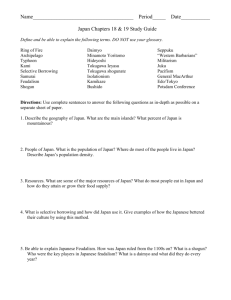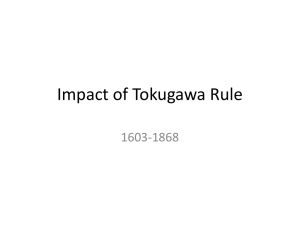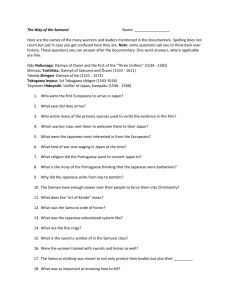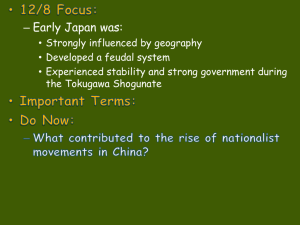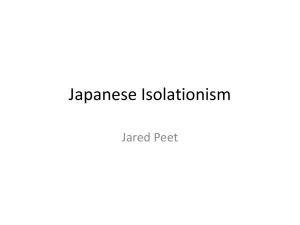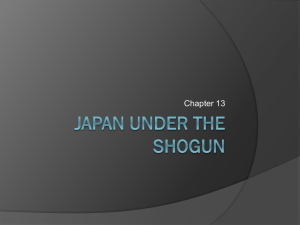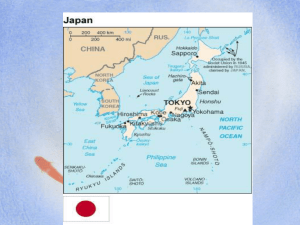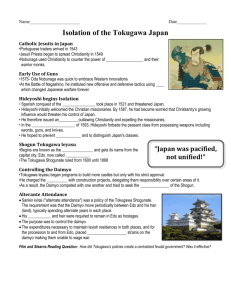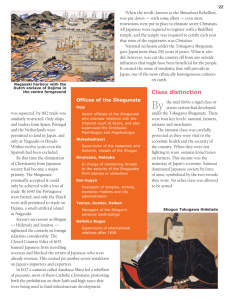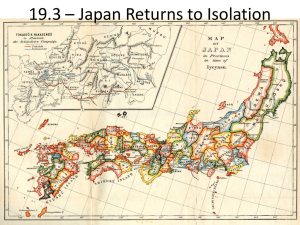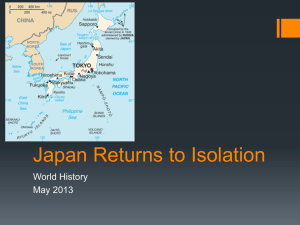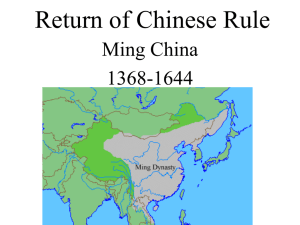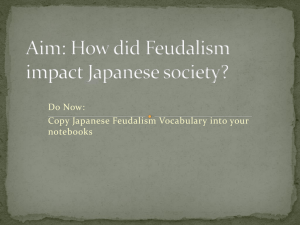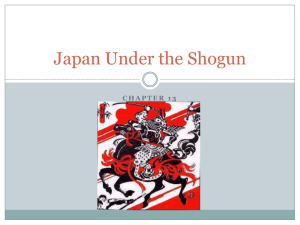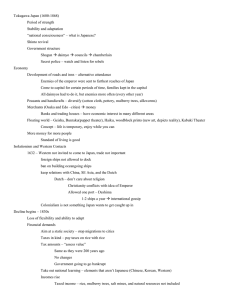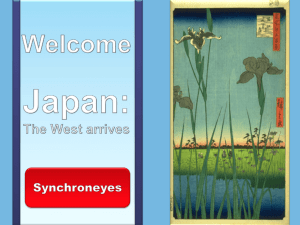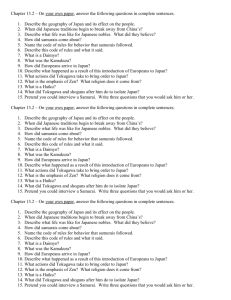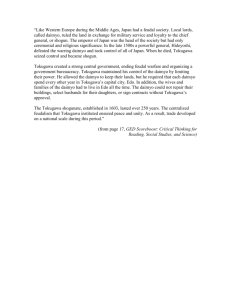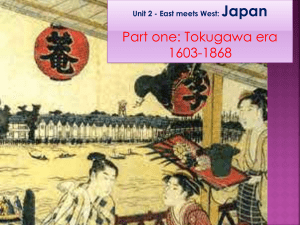Japanese Feudal System
advertisement
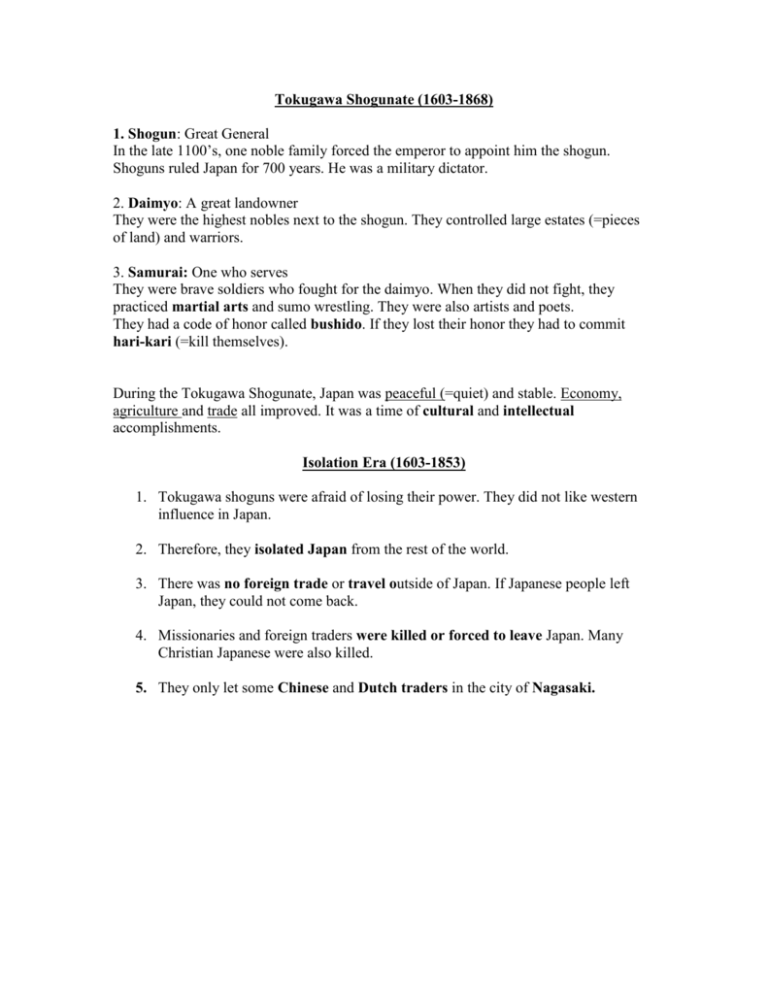
Tokugawa Shogunate (1603-1868) 1. Shogun: Great General In the late 1100’s, one noble family forced the emperor to appoint him the shogun. Shoguns ruled Japan for 700 years. He was a military dictator. 2. Daimyo: A great landowner They were the highest nobles next to the shogun. They controlled large estates (=pieces of land) and warriors. 3. Samurai: One who serves They were brave soldiers who fought for the daimyo. When they did not fight, they practiced martial arts and sumo wrestling. They were also artists and poets. They had a code of honor called bushido. If they lost their honor they had to commit hari-kari (=kill themselves). During the Tokugawa Shogunate, Japan was peaceful (=quiet) and stable. Economy, agriculture and trade all improved. It was a time of cultural and intellectual accomplishments. Isolation Era (1603-1853) 1. Tokugawa shoguns were afraid of losing their power. They did not like western influence in Japan. 2. Therefore, they isolated Japan from the rest of the world. 3. There was no foreign trade or travel outside of Japan. If Japanese people left Japan, they could not come back. 4. Missionaries and foreign traders were killed or forced to leave Japan. Many Christian Japanese were also killed. 5. They only let some Chinese and Dutch traders in the city of Nagasaki. Japanese and European Feudalism Japanese Feudalism European Feudalism Moral connection between the daimyo and his samurais. Legal arrangement between the lord and his subordinates. The Daimyo chose a son who could best take care of the land after his death. Japanese women were expected to be tough and self-disciplined. The land was given to the oldest son or divided among all his sons after the lord’s death. Respected women even though they were not equal to men. Japanese samurai could write poems, or paint beautiful paintings. Education was not important for a European knight.
